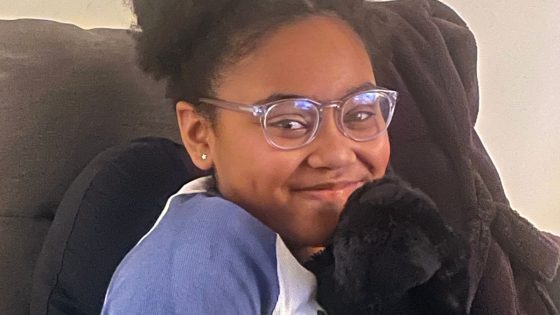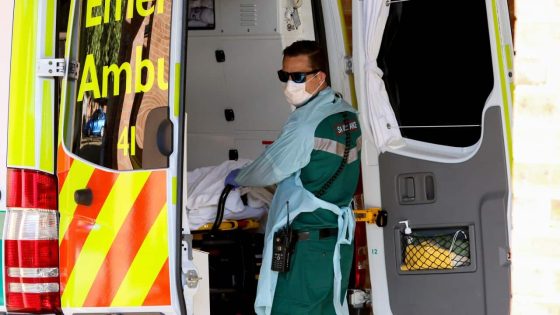The mother of an 11-year-old girl who was seen 30 times by medics before she was diagnosed with a brain tumour has described how she noticed her daughter looked “vacant”.
Imogen Darby said her daughter, Tia Gordon, had suffered symptoms over three years which were “textbook for a child with brain tumour”, but she also noticed a change in personality.
Speaking on Sky News’ UK Tonight programme, Ms Darby said: “At the time, we just thought she was being a bit of a moody teenager.
“She was constantly gloomy, she didn’t really want to do anything, when we did something that for any other child they would think it was great, Tia always seemed like she was kind of a little bit vacant, like she wasn’t enjoying herself.”
Tia, from Northampton, saw GPs, ended up in A&E and was assessed by NHS 111 about 30 times since first reporting symptoms during Covid lockdown three years ago, her mother said.
Read more on Sky News:
‘Life-changing’ sickle cell disease treatment made available on NHS
Starmer promises mental health reforms
Tia was told she was suffering from migraines and stomach bugs before she was admitted to hospital as an emergency when her condition started to affect her balance and ability to walk.
She underwent an emergency scan, which revealed she had a 3.5cm tumour on her brain.
Ms Darby recalled how the day she took her daughter to Northampton General Hospital, where she was finally diagnosed, “we were laughing, we were eating cheese toasties”.
Tia was then called in for neurological tests, during which she “was falling all over the place”, so she got a CT scan.
Once its results were ready, Ms Darby said she was taken into “a little family room”.
“For me as soon as she took me in that room I knew there was something really wrong with Tia,” Ms Darby added.
She said the doctor who shared the news apologised “because she hadn’t caught it” either.
Tia was then “blue lighted” to Queen’s Medical Centre in Nottingham and operated on over a 10-hour period, with the benign tumour removed.
Ms Darby said she believed the NHS were “trying to do a good job”.
She went on: “They did what they thought was right at the time but when it comes to Tia, obviously it wasn’t the right thing.
“I just really think that it’s a case of knowledge and awareness when it comes to brain tumours,” Ms Darby added.
Source Agencies





